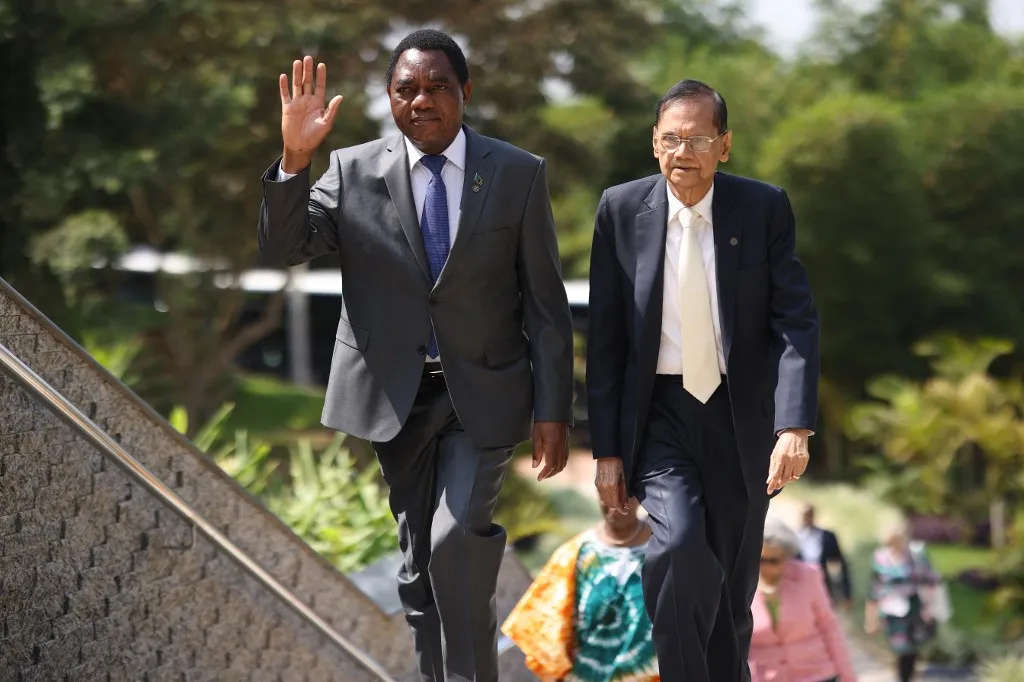The board of the International Monetary Fund (IMF) gave Zambia final approval for a $1.3bn Extended Credit Facility (ECF) over 38 months on Wednesday, a crucial step in helping the country to revamp its economy.
The dispersal of 978.2m in Special Drawing Rights (SDR), equivalent to $1.3bn, or 100% of Zambia’s quota, will allow the cash-strapped country to restructure its debts, implement much-needed economic reforms, and unlock funds for social spending and growth, the Fund said.
The decision by the IMF’s Executive Board will enable an immediate disbursement of SDR 139.88m, equivalent to around $185m.
“Zambia is dealing with the legacy of years of economic mismanagement, with an especially inefficient public investment drive,” the IMF said in a statement.
“The authorities’ program, supported by the ECF-arrangement, will advance the authorities’ homegrown reform plan to restore debt sustainability, create fiscal space for much-needed social spending, and strengthen economic governance,” according to the statement.
“The ECF-supported program will help reestablish sustainability through fiscal adjustment and debt restructuring, create fiscal space for social spending to cushion the burden of adjustment, and strengthen economic governance, including by improving public financial management. The program will also catalyse much needed financial support from development partners.”
Zambia’s default
Zambia is mired in debt distress, with growth rates too low to reduce rates of poverty, inequality, and malnutrition that are among the highest in the world, the Fund added.
In November 2020, Zambia became the first African country to default on its debt in the Covid-19 era, struggling with external debt that reached $17.37bn at the end of 2021, $5.78bn of which was owed to China.
Following Zambia’s sovereign default, the G20 feared a “debt tsunami” could engulf the continent’s most heavily indebted nations, so along with the Paris Club group of creditor nations it set up the Common Framework for debt treatments beyond the DSSI.
However, the Paris Club needed the cooperation of China, which is not a member, given the high proportion of Zambia’s debt held by Chinese lenders, and in early May it was announced that China and France would co-chair Zambia’s debt talks.
In a milestone moment, Zambia’s official creditors agreed to provide debt relief to the southern African nation in July, paving the way for the latest bailout.
Road to rescue
Since winning election last year, Zambian President Hakainde Hichilema has attempted to rescue the economy from ruin and mend fences with the IMF after the rocky relations under predecessor Edgar Lungu.
Zambia’s economy borrowed heavily to bankroll infrastructure projects under Lungu, who took power in 2015, and rattled investor confidence with a hostile regulatory environment in the mining sector and a Eurobond default in December 2020.
In a series of tweets, President Hichilema welcomed the deal, arguing that it helps to control the country’s debt pile.
Will the bailout solve Zambia’s debt crisis?
Kristalina Georgieva, managing director of the IMF, said that large efforts would be needed to ensure the programme’s success, and said that the G20 Common Framework would be crucial in restoring debt sustainability.
“Restoring fiscal sustainability will require a sustained fiscal adjustment. The authorities’ adjustment plans appropriately focus on eliminating regressive fuel subsidies, enhancing the efficiency of the agricultural subsidy program, and reducing inefficient public investment. Domestic revenue mobilisation also needs to support the medium-term adjustment…Together with the fiscal adjustment, Zambia needs a deep and comprehensive debt treatment under the G20 Common Framework to restore debt sustainability.”
“A substantial strengthening of fiscal controls is needed to support the fiscal adjustment, as well as address governance and corruption vulnerabilities.”
Unless Zambia has a clear plan for reviving its economy, it’s unclear whether the bailout will help in the medium-term, economist Hannah Ryder told African Business at the time of the first meeting.
“It’s all about the quality of how Zambia spends now – and if that spending is not growth enabling, I am not convinced of significant progress.”
In the run-up to the meeting of Lusaka’s international creditors, Zambia’s ministry of finance cancelled more than $2bn worth of projects financed by commercial loans to avoid accumulating more non-concessional debt.
Want to continue reading? Subscribe today.
You've read all your free articles for this month! Subscribe now to enjoy full access to our content.
Digital Monthly
£8.00 / month
Receive full unlimited access to our articles, opinions, podcasts and more.
Digital Yearly
£70.00 / year
Our best value offer - save £26 and gain access to all of our digital content for an entire year!
 Sign in with Google
Sign in with Google 



